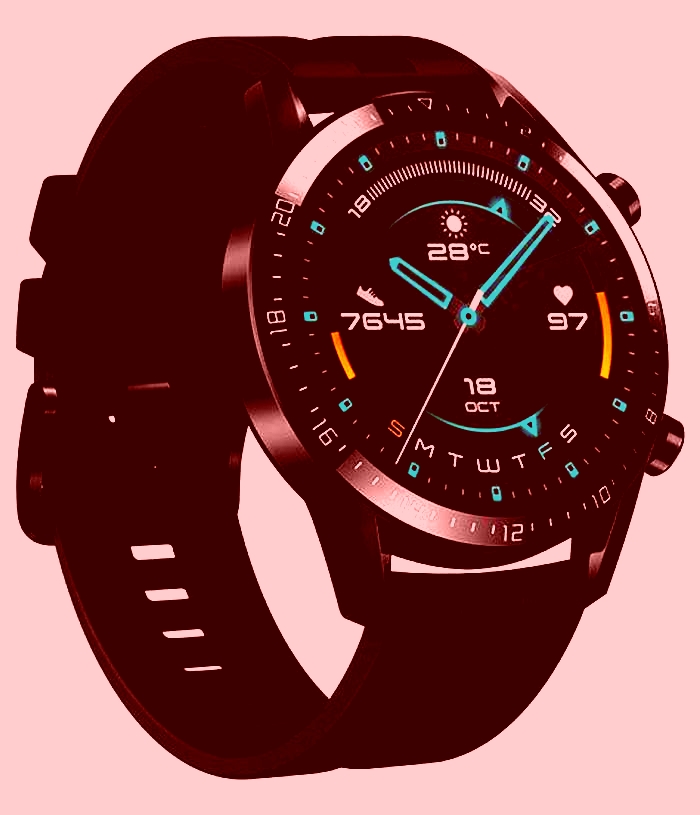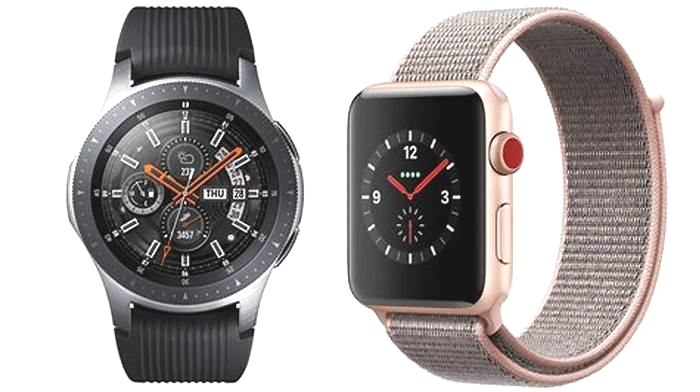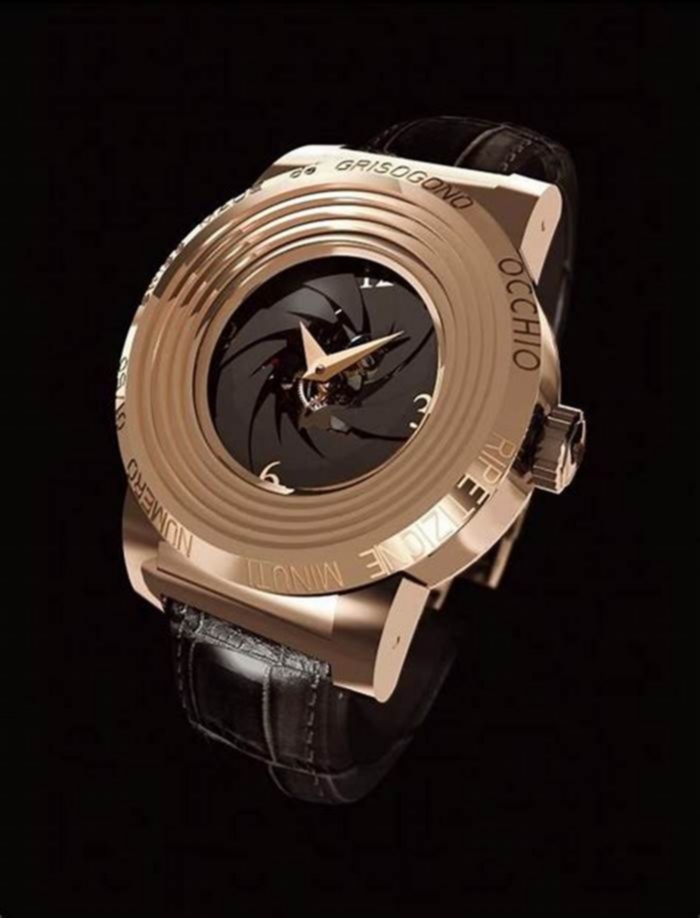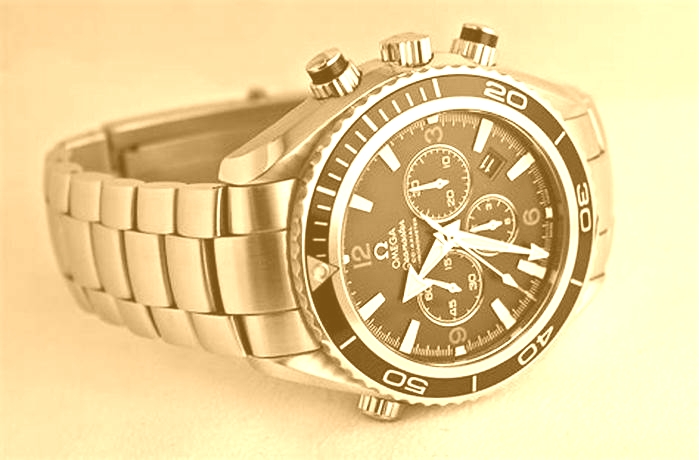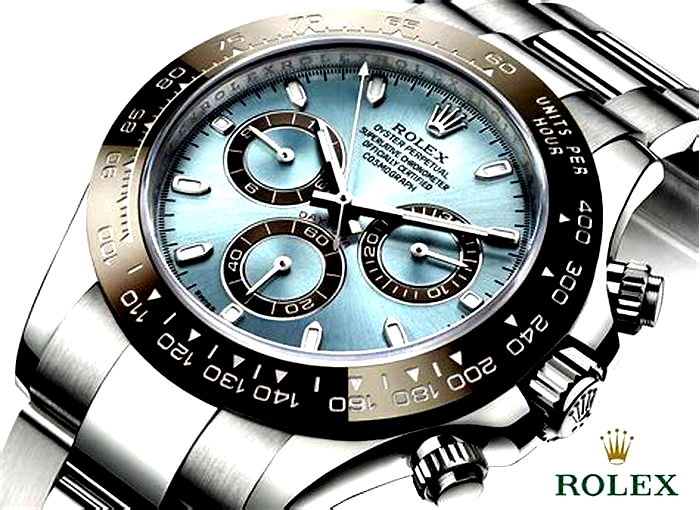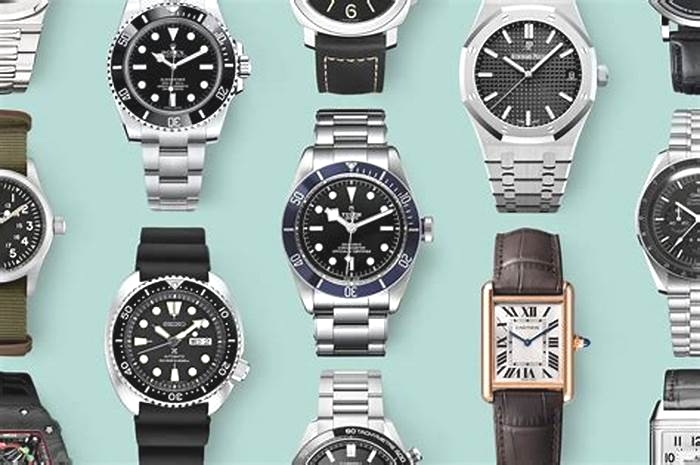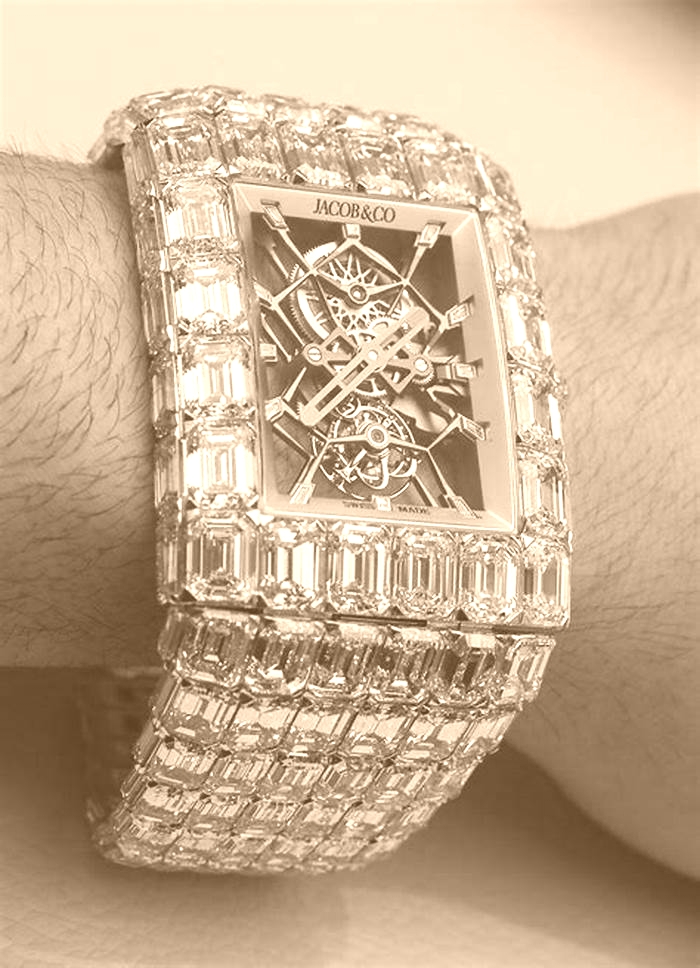Which watch last a lifetime

Which Watches Will Last A Lifetime?
For many, watches arent just devices that tell time. Theyre pieces of art, an extension of ones style, and often, a significant investment. As such, when opting for a watch, longevity becomes paramount. Nobody wishes to spend a fortune on a timepiece that wont withstand the test of time.
If youre seeking a watch that promises to last a lifetime, the answer lies in the combination of superior materials, reliable mechanisms, and brands renowned for their craftsmanship. A watch that ticks these boxes not only tells time accurately but remains stylish and functional through the decades.
Its essential to note that the longevity of a watch isnt solely based on its price tag. From the type of movement powering the watch to the materials used in its construction, several factors determine the lasting power of a timepiece.

Timeless Materials
When discussing the longevity of a watch, the materials used in its construction play a pivotal role. Two standout materials in the world of premium watchmaking are steel and titanium, often chosen for their durability and aesthetic appeal.
Steel and Titanium
Advantages of Steel
Steel, specifically stainless steel, is a common choice for watch construction. Its popularity stems from several reasons:
- Durability: Stainless steel is highly resistant to corrosion and rust, ensuring that the watch remains free from unsightly blemishes.
- Aesthetics: Its lustrous appearance gives the watch a timeless and elegant look, suitable for both casual and formal settings.
- Affordability: Relative to other premium materials, stainless steel offers a balance between quality and cost.
- Weight: Steel gives a watch a reassuring weight, offering a feel of sturdiness and quality.
Why Titanium Stands Out
Titanium, although less common than steel, has become increasingly popular, especially in high-end watchmaking. The reasons for this surge in popularity include:
- Lightweight: Titanium is remarkably light, making it perfect for those who want a substantial watch without the heft of steel.
- Strength: Despite its weight, titanium is robust and durable.
- Hypoallergenic: Titanium is an ideal choice for those with metal sensitivities as it doesnt cause skin reactions.
- Corrosion Resistance: Much like steel, titanium watches can resist the onslaught of daily wear, ensuring they look new for longer.
Sapphire Crystal
The crystal, or the clear cover over the watch face, plays a crucial role in a watchs durability. Sapphire crystal stands out as the premium choice for many luxury watch brands.
Features and Durability
Sapphire crystal is renowned for its:
- Scratch Resistance: Almost as hard as a diamond, sapphire crystal is nearly impervious to scratches from daily wear.
- Clarity: Over time, sapphire maintains its clear appearance, offering an unobstructed view of the watch face.
- Value: Watches with sapphire crystals often retain their value better, given their long-lasting clarity and resilience.
Difference Between Mineral and Sapphire Crystal
When choosing a watch, its vital to understand the distinction between mineral and sapphire crystals:
- Hardness: Sapphire crystal ranks nine on the Mohs scale of hardness, just below diamond, making it exceptionally scratch-resistant. Mineral crystal, while durable, doesnt match up to sapphire in this aspect.
- Price Point: Mineral crystals are more affordable, and often found in mid-range watches, while sapphire is a staple in luxury timepieces.
- Breakability: Though sapphire is scratch-resistant, it can shatter upon severe impact. Mineral crystals, being a bit more pliable, are less prone to shattering but can scratch more easily.
Mechanical vs. Quartz Movements
The movement, or the engine of a watch, significantly influences its longevity. The debate between mechanical and quartz movements is age-old, each bringing its set of advantages to the table.
Mechanical Watches
Mechanical watches, with their intricate gear mechanisms, represent the pinnacle of horological craftsmanship.
Composition and Longevity
The heart of a mechanical watch is its movement, consisting of:
- Mainspring: This stores energy. When wound, the mainspring releases energy to power the watch.
- Gears: They transfer energy from the mainspring to the hands and other features of the watch.
- Balance Wheel: This regulates the release of energy, ensuring accurate timekeeping.
Given the absence of batteries and with proper care, mechanical watches can function seamlessly for generations.
Proper Care and Maintenance
To ensure the longevity of a mechanical watch:
- Regular Servicing: Like any intricate machinery, a mechanical watch requires servicing every 4-5 years.
- Protection: Avoiding severe shocks or impacts can prolong the life of the movement.
Quartz Watches
Quartz watches are popular due to their precision and ease of use.
Durability of Quartz Mechanisms
A quartz movements core component is its crystal oscillator, vibrating at a fixed frequency when electrically charged. This provides:
- Accuracy: Quartz watches are incredibly accurate, often losing only a few seconds a month.
- Durability: With fewer moving parts than mechanical watches, quartz watches are less susceptible to wear and tear from daily use.
Battery Life and Replacements
A typical concern with quartz watches is battery life. However:
- Lifespan: Most quartz watch batteries can last between 2-5 years.
- Replacement: Changing a battery is a straightforward process, ensuring the watch remains functional for years.
Brands Known for Longevity
In the realm of horology, certain brands stand tall, consistently offering timepieces that not only tell time but do so for a lifetime.
Rolex
An epitome of luxury and durability, Rolex has cemented its position as a front-runner in the watch industry.
Features that Ensure Longevity
Rolex watches are renowned for their:
- Precision: Rolex movements are certified Swiss chronometers, ensuring impeccable timekeeping.
- Oyster Case: Introduced in 1926, it offers optimal protection against water and dust.
- Materials: The use of 904L stainless steel and Cerachrom ceramic bezels boosts their durability.
Iconic Models
While Rolex boasts a rich collection, some models stand the test of time:
- Submariner: A diving watch known for its resilience.
- Daytona: A racing watch with a legacy of precision.
- Oyster Perpetual: The embodiment of Rolexs pioneering spirit.
Patek Philippe
Patek Philippe is synonymous with tradition, innovation, and watchmaking prowess.
Reputation and Craftsmanship
This brand has cultivated a reputation for:
- High Standards: Patek Philippe movements undergo rigorous testing and are bestowed with the Patek Philippe Seal.
- Attention to Detail: Each watch is a product of countless hours of craftsmanship.
- Legacy: Many Patek watches become heirlooms, passed down generations.
Models to Consider
Among their vast collection:
- Calatrava: A dress watch that captures the essence of Patek Philippe.
- Nautilus: With a maritime spirit, this watch combines sportiness and elegance.
Omega
Omegas legacy is intertwined with key historical events, from moon landings to the Olympics.
Reliability Over the Years
Key factors contributing to Omegas longevity:
- Co-Axial Movement: A revolutionary escapement mechanism that reduces friction, increasing service intervals.
- Anti-magnetic Materials: Many Omega watches can resist strong magnetic fields, ensuring consistent performance.
Standout Models
Models that have stood the test of time:
- Speedmaster: Famously worn on the moon.
- Seamaster: A divers favorite for its robustness.
Seiko
Marrying affordability with durability, Seiko has won hearts globally.
Affordable and Lasting
Seikos prowess lies in:
- In-House Production: From movements to dials, Seikos in-house approach ensures quality.
- Innovations: The introduction of the quartz movement transformed the watch industry.
Top Seiko Models for Longevity
- Grand Seiko: Exemplifies the pinnacle of Seikos craftsmanship.
- Seiko 5: A range offering durability at an attractive price point.
Features to Consider
Certain features in watches play a pivotal role in determining their longevity.
Water Resistance
Importance for Durability
Water can wreak havoc on a watchs internals. Hence, water resistance is vital for:
- Protection: Shields the movement from moisture.
- Versatility: Allows wear in diverse environments, from showers to swimming.
Rating Systems and What to Look For
Water resistance is often measured in atmospheres (ATM) or meters:
- 3 ATM: Suitable for everyday use, resistant against splashes.
- 5 ATM: Can endure light swimming.
- 10 ATM and above: Suitable for diving and intense water activities.
Shock Resistance
Modern Innovations
Innovations in shock resistance include:
- Balance Springs: Made from silicon or other anti-shock materials.
- Rigid Casing: Protects the movement from external impacts.
Why it Matters for a Lifetime Watch
Shock resistance ensures:
- Consistent Timekeeping: Prevents misalignment of parts due to drops.
- Longevity: Reduces wear and tear from regular usage.
Maintenance and Servicing
Like any precision instrument, watches demand care.
Frequency of Check-ups
- Quartz Watches: Every 3-4 years.
- Mechanical Watches: Every 4-5 years.
Importance of Regular Servicing
Servicing ensures:
- Optimal Performance: Cleaning and oiling maintain accuracy.
- Extended Lifespan: Replacing worn-out parts prolongs the watchs life.
Price vs. Longevity
High price tags often come with an expectation of durability. But is it always the case?
Does Expensive Always Mean Durable?
Not necessarily. While luxury watches often boast superior materials and craftsmanship, many affordable brands offer robust watches. Research and due diligence are crucial.
Finding Balance between Affordability and Lasting Value
Seeking out brands that offer warranty, prioritize quality control, and have a reputation for durability can lead to finding a timepiece that offers value without breaking the bank.
FAQs
Why are mechanical watches considered durable?
Mechanical watches, driven by intricate gear mechanisms, are revered for their craftsmanship and durability. With proper care, these watches can serve for generations, often becoming family heirlooms.
What role does material play in a watchs longevity?
The material of a watch plays a pivotal role in its durability. Premium materials like steel, titanium, and sapphire crystal are not only resistant to wear and tear but also add a timeless charm to the watch.
How often should a watch be serviced to ensure its longevity?
Regular servicing, typically every 4-5 years, ensures the watch operates efficiently. Its akin to a health check-up, ensuring that all components are functioning correctly and identifying potential issues before they escalate.
Conclusion
In the intricate world of horology, a watchs longevity is an amalgamation of its craftsmanship, materials, and the love it receives from its owner. Timepieces, more than just functional objects, narrate stories of generations, marking milestones and weaving memories.
While it might be tempting to believe that the more expensive the watch, the longer it will last, the reality offers a more nuanced perspective. Even affordable watches, when chosen wisely, can rival the durability of their pricier counterparts.
Choosing a watch destined to last a lifetime requires research, understanding, and often a bit of intuition. However, the rewarda faithful timekeeping companion, ready to journey through lifes ups and downsis undoubtedly worth the effort.
How Long Do Quartz Watches Last? Here Is Why They Dont!
Recently I started to investigate whether a quartz will last forever. The question came to mind as I own a couple of automatic watches and have been told they can outlive me with the right care. I know that brands such as Omega, Patek Philipe, and Breitling, that is luxury brands, use quartz movements. Naturally, when being a watch enthusiast came to wonder if a quartz watch will last forever as well?
Quartz watches will not last forever. However, under the right care, a modern quartz watch will most likely outlive its first owner. Quartz watches is not very complicated, and therefore known as being cheaper, more durable, and more accurate than a mechanical or automatic watch.
In the following sections, I will disclose what makes the quartz watch cheaper, more durable, and accurate while not possible to outlive a mechanical and automatic movement.
Will A Quartz Watch Last Forever?
Quartz watches will not last as long as mechanical and automatic watches due to the construction of the watch. A quartz watch is made with electronics, whereas a mechanical and automatic watch is made of metal components. The mechanical and automatic clockworks can be serviced and has a lot of replacement parts.
A quartz movement is a lot more fragile when in contact with moisture. E.g., if condensation or leaks were to happen, the quartz watch would die. A dead movement would mean that a watchmaker would have to replace the movement, which makes the watch like new, hence no longer the same. However, the case of the watch can be reused. Therefore the watch looks the same.
All of these replacement parts for mechanical and automatic watches are specially machined and developed by years in research and development by engineers. A quartz movement is generally a lot cheaper to make and produce. Both because it has a lot less parts for the watchmaker to assembly, but also because the manufacturing process has evolved into a highly automated process.
It must be expected that most quartz watches last for at least the 2-year warranty that even the most exclusive quartz watches offer. However, some quartz watches have warranty periods of up to 6 years. However, just like everything else, the longevity of the watch depends on the care of the watch.
Do Quartz Watches Need Servicing?
One of the reasons why a quartz movement will most likely not outlive a mechanical or automatic movement is due to its electronic components. E.g., the coil to the step motor (which pushes the hands on the dial), is made of a wire thinner than a hair. Commonly, the watchmakers damage the coil when replacing the battery by hitting the coil with a finger or screwdriver.
Quartz watches needs servicing, just like mechanical and automatic watches. Every 2 to 5 years, a quartz watch needs a battery replacement. Furthermore, the mechanical parts of the movement needs proper lubrication.
Common defects:
Mechanical failure due to quartzs low complexity and small number of parts they are not required to be serviced as often as mechanical watches. This means there is longer between the average service of a quartz watch and the gaskets, which makes the watch water or dust resistant will wear out, allowing dirt and debris to enter the watch.
Electrical failure can happen if the watch suddenly shorts and snaps a wire track. It can also occur due to corrosion on the circuit board. Either way, they are close to impossible to repair. If the problem is on the wire track, it might be possible to fix.
A defect coil can happen just from hitting the coil with a fingernail or a screwdriver. The coil powers the step motor, which is what makes the hands on the dial go around, is made of wire thinner than a human hair. A defective coil cant be fixed. However, it is replaceable.
Salts and oxidation around the battery can cause the movement to stop. It is relatively easily repaired with a thorough cleanse of the involved parts by a watchmaker. Corrosion is removed, and contact surfaces are polished for proper contact with the battery.
These four different types of defects is what you will most likely encounter on your current or future quartz watch. You should let your watchmaker take care of the servicing as it is complicated, and damaging the watch is possible. Dont believe me, or want to learn how to disassemble a quartz watch properly? Then see the video below. It is a great resource to understand watchmaking.
Are Quartz Watches Durable?
All in all, a quartz watch is more durable than a mechanical or automatic watch. Quartz has less moving parts that can be damaged, and any maintenance/repair on a quartz are typically cheaper than on a mechanical or automatic watch.
While quartz watches are very delicate on the inside concerning moisture, they are durable for sport activities. If you have ever seen a commercial for a sports watch, they are mostly quartz. While Breitling, Richard Mille, and Rolex have plenty of sports watches, you rarely see them on any non-sponsored athlete.
Quartz watches are also generally cheaper, which means that people have less attachment to a quartz watch compared to a pricier mechanical or automatic watch. The quartz is easier to replace, and it is less costly to maintain.
Are Quartz Watches Waterproof?
Quartz watches are just as water-resistant as any other watch. What you should look for is the rated meters, BAR or ATM disclosed on the dial or the backplate of the watch.
No watch is waterproof. However, watches are equipped with a rated depth of water resistance. The ratings used are based on static pressure. Thus a 50-meter water-resistant watch is not guaranteed to be water-resistant in a hot tub or if sprayed with a water hose.
Imagine you roll down the window in your car. You are on the highway going 80 kilometers per hour (50 miles per hour), and you stick your hand out the window. You will feel a sudden push to your arm. That is the additional external force to your arm. The same principle applies to your watch when you are at the swimming pool. Just as you hit the water, the watch will get a lot of force on it, which might not equate to the 50 meters of static pressure.
I have written a lot more about water resistance here if you want to know exactly what you can do for activities with the rating your watch has.
Are Quartz Watches Accurate?
Quartz watches are very accurate, and even a cheap quartz watch will beat a mechanical and automatic watch in a precision battle. While a standard quartz movement will at max cost $50 to produce and assemble, the accuracy is much better than a $10.000 Rolex Submariner.
Assuming you had a Rolex Submariner brand-spanking-new from the factory and a brand-spanking-new quartz both certified in the COSC standard, the maximum deviation for the quartz is 0.07 seconds per day. In contrast, the automatic Rolex Submariner is allowed to vary -4 to +6 seconds per day. This simply goes to show that even the standards built to keep high standards allow the more significant deviation for the old technology.
If you are on the lookout for some real high quality and accurate watches, Grand Seiko, Citizen, Breitling, Bell and Ross, and Omega has some High Accuracy Quartz (HAQ). These watches have a precision within 5-10 seconds per year.
AllInWatches is founded by Jonas, who has a great interest in mechanical watches. All aspects of manual and automatic (mechanical) watches is a big interest and have been a passion since 2015, where the first automatic watch was purchased. Seeing the transparent case back and discovering the heritage of watchmaking piqued an interest in horology.

